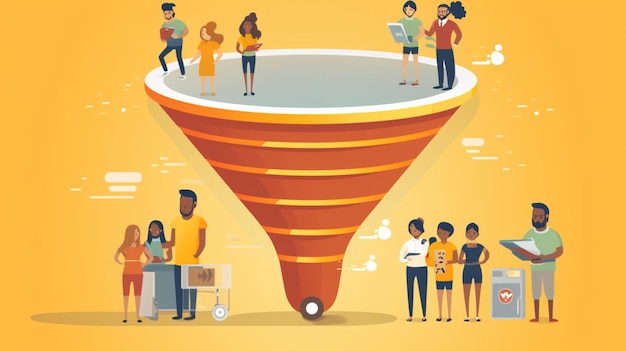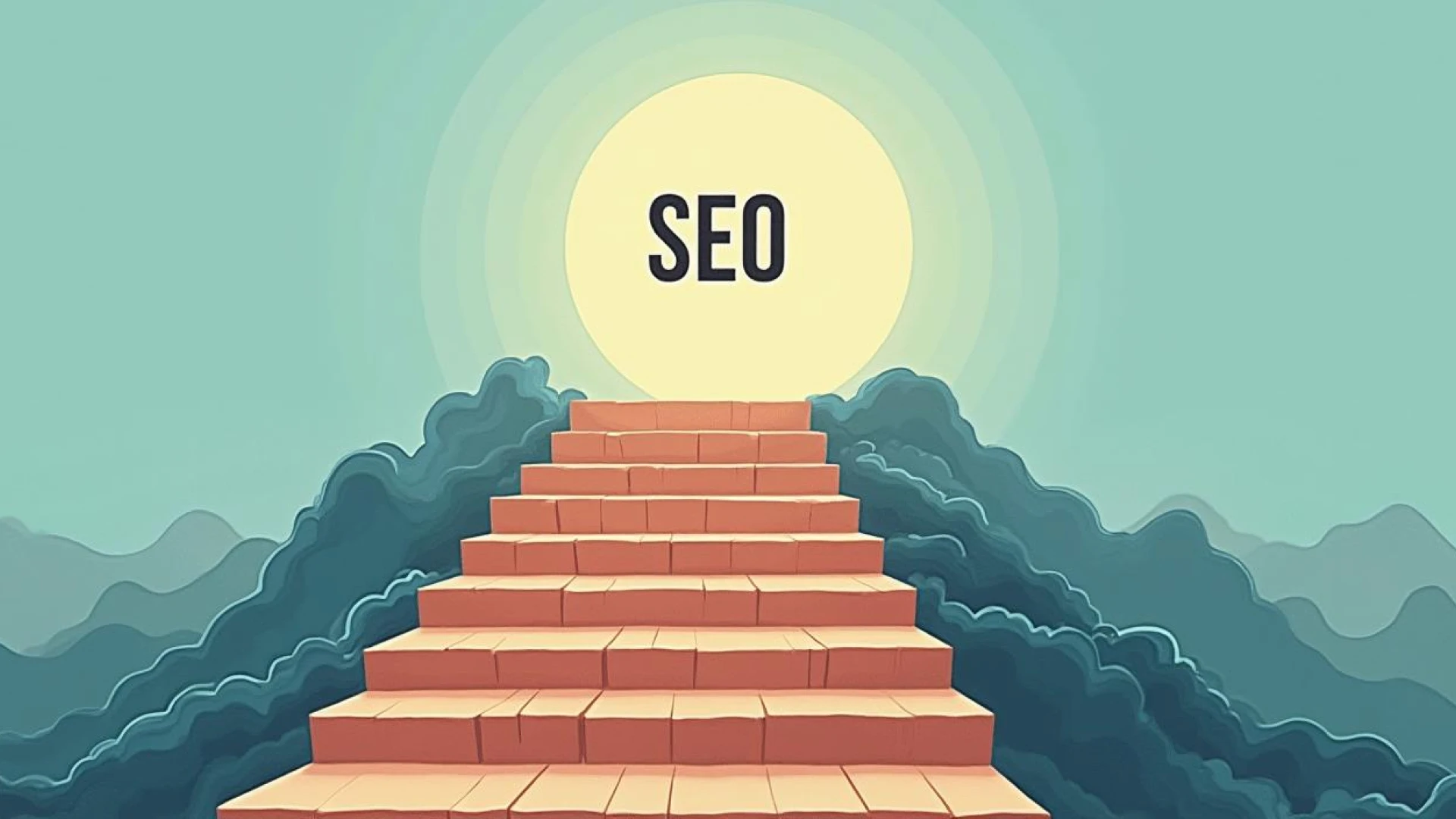What is content marketing?
Content marketing is more than just creating and distributing material online. It is a strategic approach to generating leads and engaging your target group. At its core, content marketing is publishing written and visual content on a variety of platforms, from blogs and social media to videos and websites, with the goal of increasing brand awareness, sales, and customer loyalty. This is an essential guide to content marketing in 2025.

Unlike traditional outbound marketing tactics that distract your audience with promotional messages, content marketing focuses on providing valuable, informative, and entertaining content that your audience actively seeks out and engages with. This shift to inbound marketing is increasingly important in today's digital environment, where consumers are tired of intrusive advertising and are becoming more selective about the content they consume.
Content marketing involves planning, creating, distributing, sharing and publishing content through various channels such as social media, blogs, websites, podcasts, apps, press releases, and printed materials. It includes a wide range of activities like Publication, drafting and research. The overall goal is to engage with your target audience in a meaningful way, increase brand awareness, increase website traffic, and ultimately turn prospects into loyal customers.

Unlike outbound marketing, which relies on interrupting the audience with advertisements and sales pitches, inbound marketing takes a more nuanced and customer-centric approach. By creating a compelling narrative and telling a story that resonates with your audience, you can create content that feels authentic, engaging, and relevant to your audience's needs and interests.
The power of storytelling in content marketing

One of the most effective ways to engage your audience and build connections is through storytelling. Incorporating stories into your content can captivate your readers, evoke emotion, and leave a lasting impression. Whether you're sharing success stories, customer testimonials, or behind-the-scenes insights about your brand, storytelling humanizes your content, making it more relatable and memorable.
Content marketing involves storytelling as well as the use of different content formats and media to cater to the preferences of different target groups. Diversifying your content portfolio, from blog posts and e-books to infographics, videos, and podcasts, allows you to reach audiences across different channels and platforms
Why content marketing is important
To build brand authority and trust

Content marketing allows companies to stand out in their industry by providing valuable and authoritative information to their audiences. By consistently providing high-quality content that responds to your audience's needs and interests, your company can build trust and credibility and position yourself as a trusted source of information in your niche.
To boost organic traffic and SEO

Content marketing plays an important role in increasing organic traffic to your website and improving search engine rankings. By creating optimized content that targets relevant keywords and topics, businesses can attract more visitors to their website and increase visibility on search engine results pages. Additionally, publishing new, relevant content on a regular basis sends a signal to search engines that your website is active and trustworthy, further boosting your SEO efforts.
For lead and conversion generation

Content marketing is an effective tool for generating leads and driving conversions. By creating informative and engaging content that addresses your audience's pain points and challenges, businesses can attract qualified leads and nurture them through the sales funnel. Whether it's a blog post, e-book, webinar, or case study, well-written content can educate, inspire, and persuade prospects to take action and become a customer.
To drive customer engagement and loyalty

Content marketing allows businesses to connect with their audiences on a deeper level and build lasting relationships with their customers. By providing valuable and relevant content that adds value to their lives, businesses can attract and connect with audiences, thereby driving brand loyalty and advocacy. Additionally, interactive content such as polls, quizzes, and polls fosters audience participation and strengthens the bond between companies and customers
To develop cost-effective marketing strategy

Compared to traditional forms of advertising, content marketing is a cost-effective strategy that provides a high return on investment (ROI). The advent of digital channels and social media platforms has enabled businesses to reach larger audiences at a fraction of the cost of traditional advertising methods. Additionally, the evergreen nature of content means that businesses can reap the benefits of their content marketing efforts long after publication, making it a sustainable and scalable marketing strategy.
Strategies in content marketing
In today's digital age, content marketing has become an essential strategy for businesses looking to attract, engage, and retain customers. By creating and distributing content that is valuable, relevant, and consistent, companies can establish themselves as industry leaders, increase organic traffic to their websites, and ultimately increase prospects.
You can also generate customers and conversions. However, getting started with content marketing can be daunting, especially for beginners. To help you navigate this process, we've put together a step-by-step guide to creating a successful content marketing strategy.
Finding your audience

The first step in creating a content marketing strategy is identifying and understanding your audience. You will have to answer questions such as Who are they?, What are their interests, vulnerabilities, and pain points? By conducting market research and creating buyer personas, you can gain valuable insight into your target audience's demographics, behaviors, and preferences. You can also tailor your content to their specific needs and interests.
Set SMART goals

Once you've identified your target audience, it's important to set clear and specific goals for your content marketing efforts. Use SMART criteria (specific, measurable, achievable, relevant, and time-bound) to define goals that align with your business goals. Whether your goal is to increase brand awareness, increase website traffic, or generate leads, setting SMART goals will help you stay focused and track your progress over time.
Determine your KPIs

Key performance indicators (KPIs) are metrics you use to measure the success of your content marketing efforts. Depending on your goals, KPIs may include website traffic, engagement rate, lead generation, conversion rate, customer retention rate, and more. By identifying his KPIs that are most relevant to your goals, you can track your performance and make data-driven decisions to optimize your strategy and get better results
Decide on content type and content format

Content can be in a variety of formats, from blog posts and articles to videos, infographics, podcasts, and more. Decide what type of content best suits your audience and goals. Consider your audience's preferences and consumption habits, as well as the resources and expertise available to create different types of content. Experiment with different formats to find one that resonates with your audience and gets the results you want.
Choose a content channel

Once you decide what kind of content you want to create, choose the channel to distribute it. Think about where your target group spends their time online and which platforms can best reach them. Whether it's your website, social media platforms, email newsletters, or industry publications, choose channels that align with your goals and effectively reach your audience.
Set a budget

Content marketing can be cost-effective, but allocating your resources wisely is critical to success. Determine your budget for content creation, distribution, and promotion by considering factors such as staff, tools, and advertising costs. Remember, quality is more important than quantity. So, focus on creating quality content that resonates with your audience and provides value.
Create a content publishing schedule

Consistency is the key to successful content marketing. Create a content publishing schedule that determines when and where new content will be published. Consider factors such as frequency, timing, and seasonality, as well as the resources and capacity available to create and distribute your content. Sticking to a schedule will help you maintain momentum, build trust with your audience, and maintain it over the long term.
Content creation and distribution

Once you have your strategy in place, it's time to start creating and distributing your content. Use research and insights to inform your content creation process and ensure each piece of content is valuable, relevant, and aligned with your goals. Use a combination of owned, earned, and paid media channels to reach your target audience and maximize your reach and impact. Monitor the performance of your content, make adjustments as needed, and optimize your strategy for better results.
Analyzing and measuring results

Finally, regularly analyze and measure the performance of your content marketing efforts against established KPIs. Use analytics tools and tracking software to monitor key metrics such as website traffic, engagement rates, and conversion rates. Evaluate what works well and what could be improved, and use these insights to refine your strategy and drive continuous improvement. Continuously measuring and iterating your content marketing efforts helps ensure you deliver value to your audience and meet your business goals.


